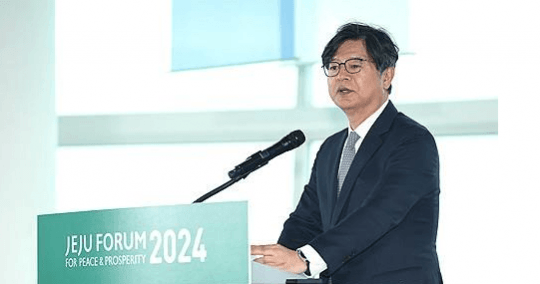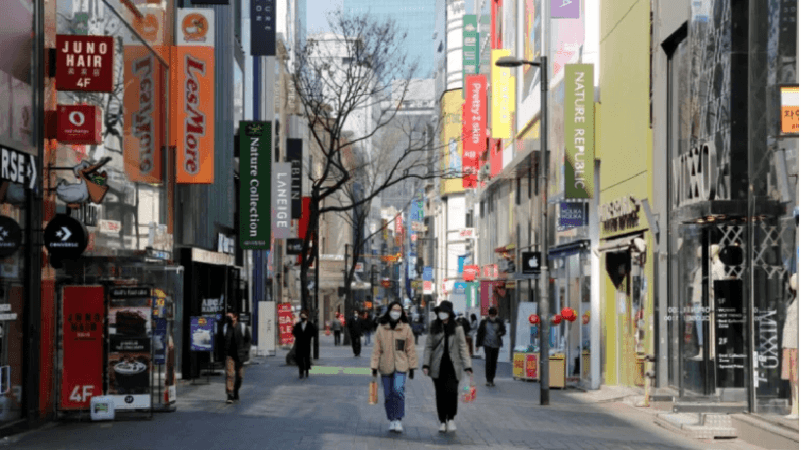
South Korea's provincial government heads propose policies to address the country's low fertility rate and ageing population.The strategy includes global branding of cities and improving living conditions outside Seoul to encourage families to settle.
North Gyeongsang Province Governor, Lee Cheol-woo, emphasized the importance of regional integration and development. The proposed policies could make South Korea a model for other countries facing similar demographic challenges.

In a recent development, provincial government heads in South Korea have proposed a series of policy directions aimed at addressing the country's rapidly ageing population and low fertility rate. The proposals were made during a session at the Jeju Forum for Peace and Prosperity, an annual international peace forum held on South Korea's southern resort island, Jeju. The session, hosted by Yonhap News TV, focused on global branding policies for globalisation.
Seong Ghi-hong, CEO and President of Yonhap news agency, opened the session with remarks that underscored the potential of global branding of cities as a solution for revitalising local cities. This strategy, he suggested, could be instrumental in addressing the demographic challenges facing the country. South Korea's total fertility rate, which is the average number of children a woman is expected to have over her lifetime, reached a record low of 0.72 in 2023.

North Gyeongsang Province Governor, Lee Cheol-woo, was among the key figures proposing policy directions. He emphasised the importance of regional integration in addressing the low birthrate. According to Lee, the main cause of the low birth rate is the concentration in the wider Seoul area. To counter this, he proposed that regional areas must be equipped with good schools, medical facilities, and cultural facilities akin to those in the Seoul area.
North Jeolla Province Governor, Kim Kwan-young, also played a significant role in the discussions. He highlighted his province as a test bed for South Korea's future, vowing to lead the country with his province. North Jeolla Province, known by its name for 128 years, was renamed North Jeolla Special Self-Governing Province on January 18 this year, marking a new chapter in its history.
These proposals and discussions are part of a broader effort to address demographic challenges that are not unique to South Korea. Many developed countries, including Japan and Germany, have grappled with similar issues. In Japan, for instance, the government has implemented a range of measures, including promoting gender equality in the workplace and providing financial incentives for families to have more children, to combat its low fertility rate.
In South Korea, the proposed policy directions represent a shift in focus towards regional development and integration. By improving living conditions outside the Seoul area, the government hopes to encourage families to settle in these regions, thereby boosting birthrates. The emphasis on global branding of cities also reflects a recognition of the role of urban development in addressing demographic challenges.
In conclusion, the policy directions proposed by the provincial government heads in South Korea represent a comprehensive approach to addressing the country's low fertility rate. By focusing on regional development, integration, and global branding of cities, they hope to create conditions conducive to raising families, thereby reversing the trend of declining birthrates. As these policies are implemented and tested, South Korea could serve as a model for other countries grappling with similar demographic challenges.
















